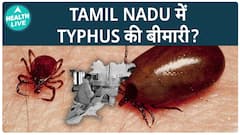IVF reduces risk of genetic disorders' transmission

New Delhi [India], September 1 (ANI): The medical science has given hope to the millions of couples who want to experience parenthood but couldn't do so because of various issues like physical deformities, infertility, and genetic disorders.
With various fertility treatments and ART (Assisted Reproductive Technologies) like IUI (Intra Uterine Insemination), IVF (In Vitro Fertilization), surrogacy etc., childless couples can now conceive and have a healthy baby.
Couple with a serious genetic disorder like Down's syndrome, Thalassemia etc. has major chances of transferring the disease to their child and that's why parents with a genetic disease are afraid to plan a pregnancy to avoid passing fatal disease or lifelong illness to the child. IVF technique has now given hope to thousands of such couples. Here's how-
IVF- A Perfect Answer
The IVF procedure uses female eggs and male sperms that are fertilized outside the body and hence, the doctors have complete control over the development of the embryo. Over the years, the IVF technique has undergone a vast development which has been a boon for couples with genetic diseases.
Through a technique named 'Embryo Preimplantation Genetic Diagnosis', i.e. genetic profiling of the embryos, the doctors can now select embryos that are free of dangerous mutations which are carried by any one of the parents. Generally, the common test procedures require months of testing in the labs while in this technique, the mapping can be done within 2 weeks along with the IVF treatment.
Dr. Priti Gupta, Consultant Fertility & IVF, First Step IVF Clinic, New Delhi further threw light on this issue, she said "IVF is a great technique for couples with a high risk of passing lethal diseases to the baby. For e.g. if both the partners have thalassemia major, their child is vulnerable to acquire this disorder. However, if they are conceiving through IVF, it is possible to know whether the baby will have the disease or not. Only the healthy chromosomes will be chosen for fertilization and hence, you can reduce the chances of passing on the genetic disorders in the baby." (ANI)
This story has not been edited. It has been published as provided by ANI
Trending News
Top Headlines































